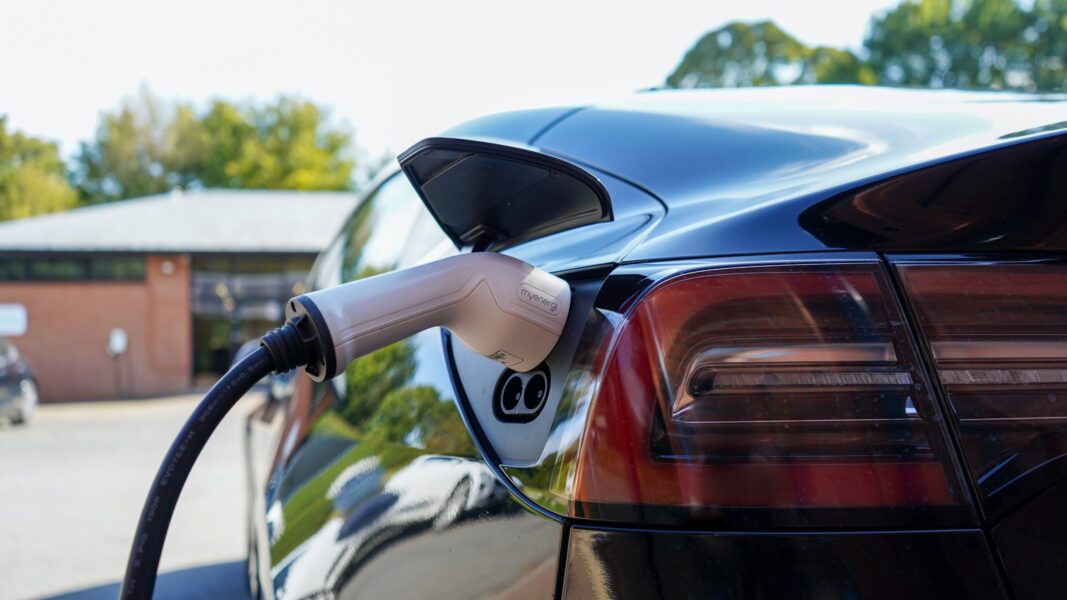We’ve said a thing or two about Electric Vehicles not being the green dream the Climate Cult promised. It is a problem they can’t escape, even if they overcome their impracticality in wide-open America, which seems unlikely. But they have their advocates, including actor Rowan Atkinson, but even he’s got concerns.
As you may know, the government has proposed a ban on the sale of new petrol and diesel cars from 2030. The problem with the initiative is that it seems to be based on conclusions drawn from only one part of a car’s operating life: what comes out of the exhaust pipe. Electric cars, of course, have zero exhaust emissions, which is a welcome development, particularly in respect of the air quality in city centres. But if you zoom out a bit and look at a bigger picture that includes the car’s manufacture, the situation is very different. In advance of the Cop26 climate conference in Glasgow in 2021, Volvo released figures claiming that greenhouse gas emissions during production of an electric car are 70% higher than when manufacturing a petrol one. How so? The problem lies with the lithium-ion batteries fitted currently to nearly all electric vehicles: they’re absurdly heavy, many rare earth metals and huge amounts of energy are required to make them, and they only last about 10 years. It seems a perverse choice of hardware with which to lead the automobile’s fight against the climate crisis.
Does it sound different coming from a famous actor? Maybe not, because who are these people but folks who pretend for a living? Why would I care? I’m inclined to agree, but the Mr. Bean actor has some credentials.
Electric motoring is, in theory, a subject about which I should know something. My first university degree was in electrical and electronic engineering, with a subsequent master’s in control systems. Combine this, perhaps surprising, academic pathway with a lifelong passion for the motorcar, and you can see why I was drawn into an early adoption of electric vehicles.
He’s also a longtime “employee” in an industry bristling with left-wing advocates who will use their reach to promote Marxist ideas most of them don’t even understand. That may put the rank-and-file pronoun pondering progressive in good company if by good you mean the end of modernity, prosperity, and comfort for the peasants, but most folks should be suspicious, even when they come out on what appears to be your side of an issue.
Atkinson’s remarks come to us from a lengthy piece in The Guardian, and he’s got more to say.
Unsurprisingly, a lot of effort is going into finding something better. New, so-called solid-state batteries are being developed that should charge more quickly and could be about a third of the weight of the current ones – but they are years away from being on sale, by which time, of course, we will have made millions of overweight electric cars with rapidly obsolescing batteries.
Atkinson ponders advances in hydrogen technology as a replacement, but as Eric Worrall notes at WUWT, it is a dangerous commodity with handling problems that might prevent it from reaching escape velocity. Rowan adds that it might be the only escape from fossil fuels for heavy trucks and equipment, and if they can make that work, there might be motivation to downscale for passenger vehicles.
That is a fair point, and he makes several other reasonable suggestions. In other words, he’s not bashing EVs; he’s walking through the problems and options because Lithium batteries appear more an interim step toward what might work. All of which leads to his almost hitting the mark.
As an environmentalist once said to me, if you really need a car, buy an old one and use it as little as possible.
Loving the motorcar is the problem; in the United States, it is a multi-generational-cultural problem. The automobile is as much a symbol of freedom and mobility as the American Bald Eagle. And while coast-hugging elites can’t see it from their urban plantations, most of the country is wide-open and unsettled, and most of us can’t cross it in a Jetstream, and it seems like they don’t want us crossing it at all.
The point of it all is to make mobility a luxury so that we are forced to gather in their 15-minute ghettoes where they can keep an eye on us. Rowan Atkinson is closer than many but still too far away. The environment that’s the problem isn’t the biosphere. It is any theater in which notions of an unalienable right to liberty remain.
Mobility, the inherent right to travel, must die so future generations won’t feel so inclined to be free. Once you accept that truth, the rest is arranging deck chairs on the Titanic.
HT | WUWT
